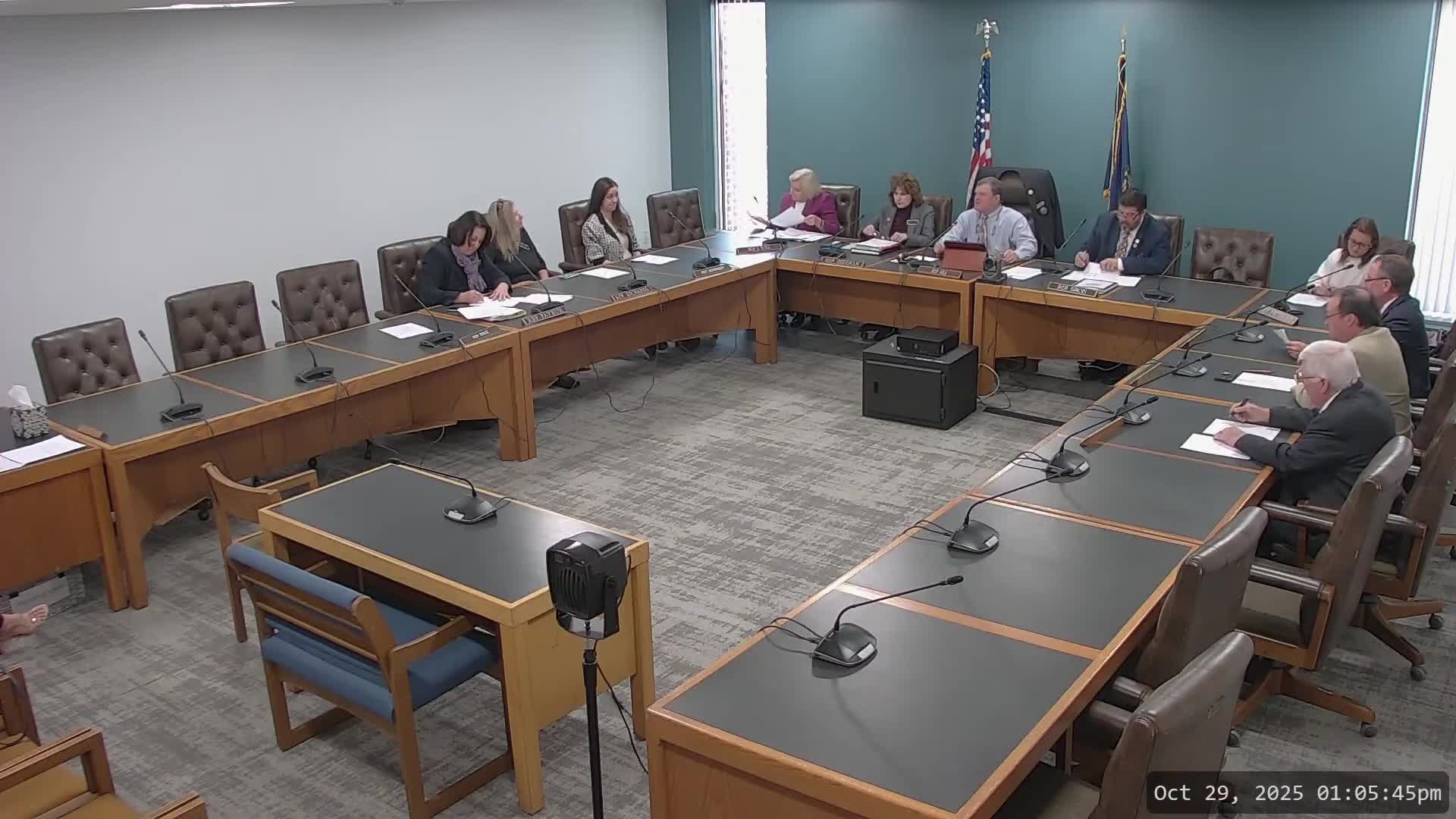Committee approves amendment and recommends HB 314-FN 'ought to pass' after debate over public lobbying funds
Get AI-powered insights, summaries, and transcripts
Subscribe
Summary
The Legislative Administration Committee approved a replacement amendment to House Bill 314-FN restricting use of public funds for lobbying, adding an opt‑in ballot process and reporting requirements; the committee recommended the bill 'ought to pass as amended' by a 7–4 vote.
The Legislative Administration Committee voted to adopt a complete replacement amendment to House Bill 314‑FN that would restrict the use of federal, state and local public funds for lobbying activities and require municipalities that choose to pay for lobbying to notify voters. The amendment (2025-3026H) passed on a roll call and the committee then voted 7–4 to recommend House Bill 314‑FN 'ought to pass as amended.'
Representative Turcotte, who sponsored the replacement amendment, told the committee the measure is aimed at transparency and local determination. "Nothing in the section shall restrict public officials or public employees from testifying before legislature unless the individual testifying is required to register as a lobbyist," Turcotte said while explaining that the provision is intended to make clear the restrictions apply only to registered lobbyists and not to ordinary municipal employees or officials testifying in their official capacity.
The amendment adds a definition of "public funds," prohibits using those funds for lobbying except under a local ballot question, and requires municipalities that authorize public funds for lobbying to report the amounts in an annual report to residents. It also includes language aligning the bill with the statute that specifically addresses the New Hampshire Municipal Association (RSA 31:8‑a).
Committee members raised questions about who would be covered and how the ballot process would work for different local entities. Representative Wall and others asked whether school districts, counties and cooperative districts would be affected; Turcotte and other members said the sponsor's intent is that RSA 15:5 (the lobbyist statute) covers lobbyists generally and that the amendment's procedural ballot language could be applied to municipalities, school districts and counties in keeping with existing local processes. Representative Burrillville and others explained that school districts and municipalities are distinct legal entities and described how ballot schedules and deliberative sessions differ by community type.
Members sought clarity on practical effects for counties and for cooperative school districts when towns within a cooperative district vote differently on a question. Committee members replied that the amendment uses existing municipal processes: the question would be placed substantially as specified on a ballot, and municipalities that opt in could later rescind the authorization using the same procedures. A committee member noted that in cooperative districts the aggregate cost would be reported even if towns share costs differently.
Representative Gallo and others expressed concern the committee did not hold a separate public hearing on the substantially different replacement language, noting the amendment differs markedly from the version the committee previously considered; Turcotte said the retained‑bill process and the fact that the amendment was ruled germane mean further public hearings will occur if the bill advances to the Senate. Representative Gallo also pointed out the bill's effective date in the draft is January 1, 2027, and asked whether the committee should instead recommend further study to permit wider public vetting.
On procedure, Representative Sheehan seconded the motion to adopt the replacement amendment. The clerk called the roll on the amendment; the amendment passed. The committee then moved to the question of 'ought to pass as amended' on House Bill 314‑FN and approved the recommendation by a voice/roll-call combination, recorded as 7 ayes and 4 nays.
The committee recorded concerns and clarifying requests on several points that could be addressed in later stages: whether the ballot language will be uniformly implementable across municipalities, counties and cooperative school districts; whether the reporting form and timing are sufficiently specified; and whether the statute‑specific reference to the New Hampshire Municipal Association (NHMA) could be interpreted as singling out that organization rather than applying the same process to other associations supported by public dues or appropriations. Turcotte and other members said the intent, as part of the public hearing record, is for the amendment to apply broadly to entities covered by RSA 15:5 and to align RSA 31:8‑a with the amendment's transparency requirement.
The committee did not adopt additional amendments during the meeting. The bill and adopted amendment will next proceed through the standard legislative process if scheduled for the House floor and, if passed there, to a public hearing in the Senate as part of the retained‑bill pathway the committee described.
